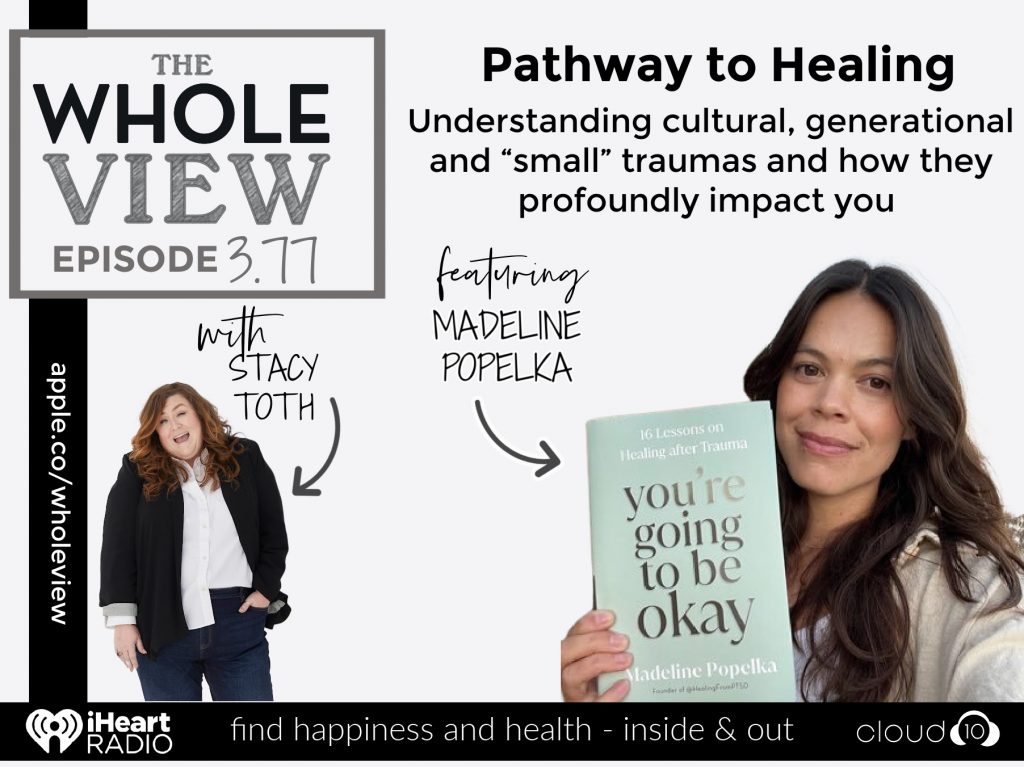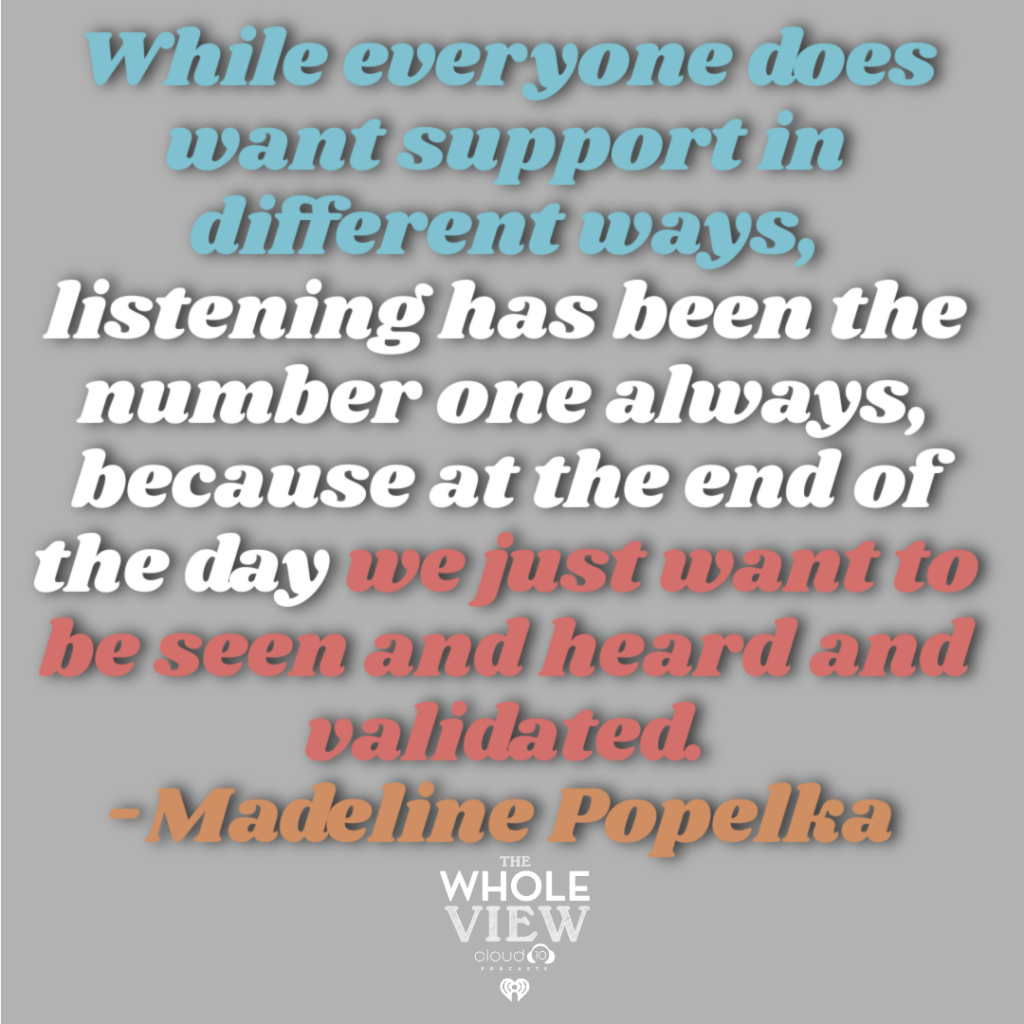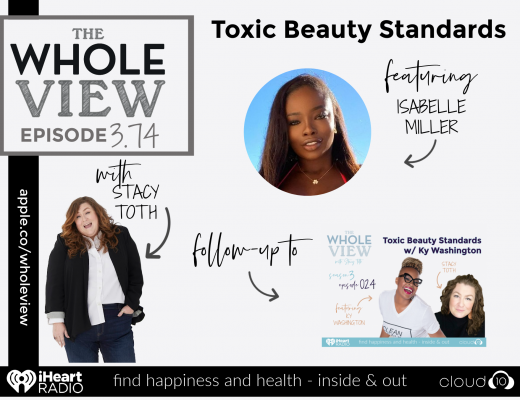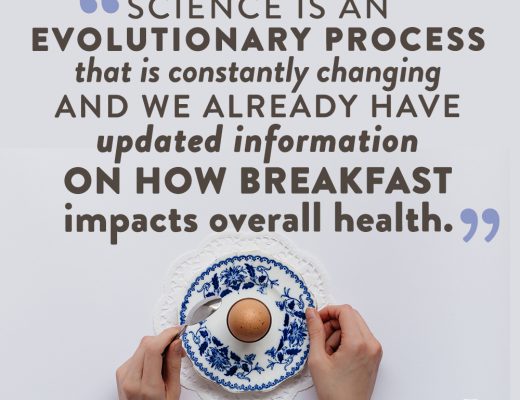Welcome writer, trauma survivor, and mental health advocate Madeline Popelka to The Whole View! Stacy and Madeline discuss the profound impact of cultural, generational and “small” traumas, how we can create truly safe space, and how to find the goodness in the midst of suffering on the pathway to healing.

Find Madeline:
If you enjoy the show, please leave a review. Letting people know on iTunes or however you listen that it’s worth their time could change someone’s life!

Key Takeaways on Your Pathway to Healing
Introductions
- Madeline was born and raised in the Bay Area and grew up in an Asian American household where mental health was never discussed. As a daughter of a refugee, intergenerational trauma runs through her family. She struggled with her mental health for my entire life.
- When she started to experience PTSD symptoms in my late twenties, she didn’t know the first step in getting help. As she began learning life lessons along my healing journey, she felt an urge to share her insights so other sufferers so wouldn’t feel so isolated. In February 2020, she created a space for other trauma survivors, @HealingFromPTSD, which quickly became the largest trauma healing community on Instagram.
- Now featured in publications such as Newsweek and Cosmopolitan, as well as her new book You’re Going to Be Okay, Madeline has forged a new path for herself – beyond her PTSD.
Pathway to Healing
- Stacy reminds us that we ALL have trauma. We may not have PTSD, but about 5% of adults have PTSD in any given year – about 13 million Americans. And, 8 out of every 100 women will have PTSD at some point in their life. So it’s safe to assume even if it’s not us, we likely know someone who has experienced significant trauma.
- As Dr. Bruce Perry explained on Brene Brown’s Unlocking Us podcast, “trauma shapes our brain, how our stress response system is completely affected by what we’ve lived through… I think about trauma as any pattern of activating your stress response system that leads to an alteration in how that system is functioning, and that leads to an over-activity and an over-reactivity.”
- Madeline notes that when you grow up in a world where you feel like you are less worthy and unlovable, that becomes a core belief. And if you live with that belief for decades, it takes a lot of work and a lot of time to start to tear down that belief and start building up a new narrative about yourself.
- So, remember to be really gentle with yourself, because when we get triggered or we have a certain reaction, it’s really easy to criticize ourselves. While It’s important to hold ourselves accountable and take information to learn, it’s not going to help you get better if you’re just beating yourself down.
- Stacy and Madeline discuss the concept of “safe space”. Madeline says she that she believes creating a safe space involves allowing someone to show up as themselves with all of their emotions without fear of being judged, criticized, or dismissed. Being fully present for someone without trying to fix them, without trying to offer unsolicited advice or asking a bunch of invasive questions.
Next Steps in Healing
- Step one is self-awareness, recognizing when we are falling back into ways of coping informed by our trauma or PTSD. An outside perspective usually helps, whether in therapy or by seeing those behaviors in someone else.
- Find more supportive ways to cope, whether that be grounding or breathing exercises, have a new tool in your back pocket. Take the time to process what’s coming up for your. And practice using those tools – it may be frustrating and not feel useful right away.
- Overall, it’s important to meet yourself with compassion and try to comfort yourself, acknowledge and validate your feelings, and find ways to self-soothe.
- Especially be gentle and try to prepare yourself when you know there may be a challenging or triggering date or season coming up.
- The more we can communicate our process and the more we can get our people engaged in the process the better,
- At the core of it, people just sometimes need to be reminded that they’re not alone.
- Madeline has 16 lessons in their new book, and she shares Lesson 11: Hold space for the goodness. Often when we’re dealing with trauma and you’re struggling with symptoms, you’re world is limited to your suffering. When we’re so consumed by our pain, we don’t even acknowledge the good things. Healing is just as much about experiencing the good things as it is working through your pain. We need those little moments to help keep us moving forwards. Keeps the hope alive.
- Challenge yourself: What is one good thing that happened today?
Studies, References & Products
- You’re Going to Be Okay by Madeline Popelka
- Unlocking Us (Brené Brown): Oprah Winfrey and Bruce D. Perry, M.D., Ph.D. on Trauma, Resilience, and Healing
- The Whole View, Season 3, Episode 27: Understanding ACE Trauma w/ Sarah Marikos
- U.S. Department of Veteran Affairs: How Common is PTSD in Adults?
- NAMI.org can help you find a support group
Sponsors
- HelloFresh.com/50WHOLEVIEW | Use code 50WHOLEVIEW for 50% off PLUS 15% off the next two months
- Babbel.com/WHOLEVIEW | Use code WHOLEVIEW to get 55% off a subscription
- Beautycounter.com/StacyToth | Go to Realeverything.com/September for special listener deals!
Want more info on our Real Life? Healthy recipes, parenting tips, and general lifestyle stuff goes out in our Real Everything newsletter, join here.
Never want to miss a post, sale, or deal? Join my Healthy Inside & Out e-mail list for more info on non-toxic living and safer skincare!




